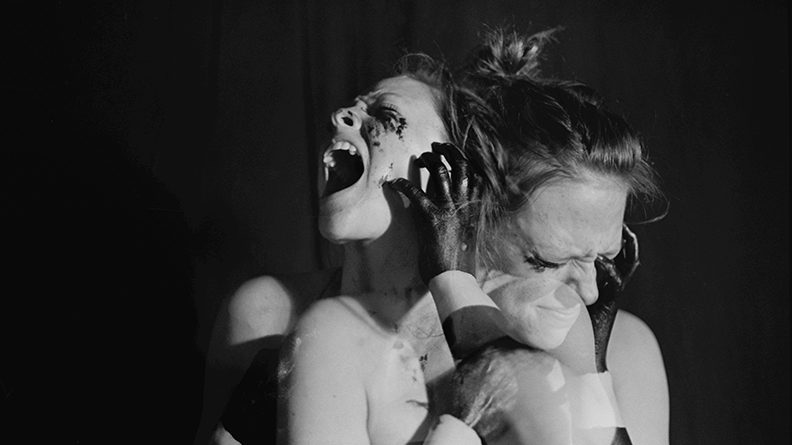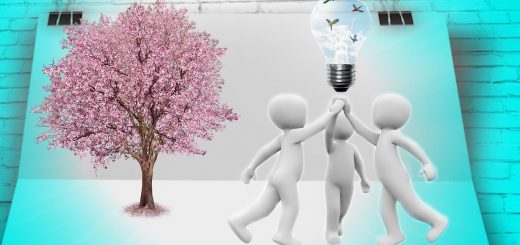Denial and Trauma: Not wanting it to be true
CW/TW: Mention of trauma, denial of trauma
Denial is the refusal to accept something as true or desired, although evidence doesn’t leave much room for any other explanations. You can deny scientific truths, you can deny that you experience certain emotions and you can also deny the needs and feeling of other people. One of the biggest causes for denial is the inability to assimilate a certain truth into one’s view of the world or one’s life. If you believe the Bible’s text to be true, the Big Bang can’t have happened. If you are in love with your best friend’s husband, you can’t admit those feelings because they are against social conventions. And if someone tells you that you have hurt them, you can’t accept that because it would destroy your view of yourself as a good person. Everyone has a blindspot somewhere, a certain something that they just can’t accept as the truth because it would be too overwhelming to deal with. In trauma survivors of complex trauma, denial can become pathological. And it is definitely for me.
Trauma and Denial
Just like everyone else, trauma survivors want to live good healthy lives. They want to be able to enjoy the positive moments and work on the goals that they have set for themselves. They want to be “normal”. No one wants to have been through trauma. No one wants to have to deal with the ghosts from their past. It makes sense, right? I don’t want to be a fucked up mess. I want to function, I want to seem like I got my shit together. And one way to be able to do that, is to deny that the past was bad. You can either just avoid talking and thinking about it altogether, or you can just push it away.
We all tell our own narratives after all. We all make those subconscious decisions to change our memories a little so they fit into the narratives of our lives. That is a very human thing to do. Our memories are never a full retelling of an event or a fact. They are flashes that we look at through glasses tinted with our feelings and needs. A good example is when someone passes away and we only remember the good things about them, and push away all the conflicts, all the weird moments, all the tears. It is human. it is how we are able to move forward and not be stuck in feelings that are unhelpful for us.
Until we can’t do that anymore. See, if you have complex trauma (long term trauma where you were stuck in a traumatic situation that you were unable to get out of) in your past, you often don’t understand that what you are going through is not “normal”. Do children who get abused know that their experience of life is different from that of others? All they know is trauma, they know nothing else. So for a long time they live with the conviction that if they felt hurt by what has happened, it must mean that they are weak and that it is their own fault that they are struggling.
But then …
For many complex trauma survivors, the trauma first catches up with them many years after the trauma has happened. There are so so many survivor stories about people having their whole life falling apart in their 20s and 30s. Suddenly the flashbacks come. Suddenly the nightmares become unbearable. And suddenly you remember things you don’t want to remember. Or you are not even aware of that your breakdown comes from the pain in your past. That is definitely how it was for me. My life was perfect. Everything was great. I was healthy. I was together with someone I loved and who loved me. And I had friends. I travelled. I rocked my academic career. And then boom, everything fell apart.
And damn it, did I try hard to hold onto denial at that point. When I got assessed by psychiatrists and psychologists, I never really mentioned any trauma. Sure, my childhood wasn’t that great, but whose childhood really is, eh? I got misdiagnosed with a lot of shit. Yes, I got a PTSD diagnosis, among other things. But it was never anything that was ever focused on. It took me six years in psychiatry to have someone poke me about my past. And the floodgates opened. I still denied that anything bad ever happened. You know, I was just a very sensitive child, and I don’t really remember only bad moments, I remember good times too.
I did something that many trauma survivors do as well: minimization. “It wasn’t that bad.” – “Others go through much worse stuff.” – “I was just a very weak child.”. I thought they were wrong. Yes, I had flashbacks, yes, I had all the symptoms of complex post-traumatic stress disorder. But come on, they must be wrong. My childhood having been a terrible time of my life just didn’t fit the narrative of my life, of how I saw myself. How I had always seen myself. I had made myself responsible for feeling sad and helpless during my childhood. And I never blamed my father or my other abusers. I thought I had invited people to hurt me because I am a weak easy victim.
Realizing Things
This is actually a sad realization. Because I denied my trauma and as a consequence didn’t deal with it, I never saw my own behaviour as reenactment or caused by my trauma. I didn’t realize that who I was, and how I allowed others to treat me, was a result of my trauma. I thought that I was just not worthy of love, respect, care or understanding. And sad sad sad again, I still often think that. When I end up in a situation, where I get hurt, I think it is my fault. I blame myself. Denial not only helps you to be able to function, but it also stops from healing and processing.
But realizing that you are denying, fucks up your world. Your whole life becomes a lie. Everything you believe about your family, about your past, becomes a lie. And there is no way to return to denial. I mean, yeah, I still sometimes do that. But you can’t do that for longer periods of time. Someone will always remind you of what you have told them, or someone from your past brings something up that proves that stuff has really happened.
Dissociative Amnesia and Denial
I also have an additional issue with it comes to accepting my trauma. I have Dissociative Identity Disorder (DID) and one of the symptoms is amnesia. That amnesia can be between different alters, as in like I sometimes miss hours of my day because someone else has taken over, and I then only have a blurry or no recollection of what has been going on. But the biggest kind of amnesia that I am struggling with is amnesia about my trauma and my childhood. I (as in the host) have not experienced the trauma.
And I actually don’t remember much of my childhood at all. I can’t tell you the names of my friends from back then, and I can’t put dates to events. I know that sounds crazy, and fuck, it feels crazy. But it wasn’t me. Other alters in my system are the trauma holders, they remember every detail, they felt all the hurt. And sometimes, I get flashes of what has happened . It is like I am watching movies about someone else’s life.
For a long time, I thought I was a very fucked up person for having weird movies in my head. Movies about sexual abuse from when I was a child. Torture done to me by my own father, by other men, by older boys, my cousin. Thinking that I was a pedophile, or just a very fucked up person, made more sense to me than accepting that I have been through terrible abuse. I remember or had a sense of (again: other alters experienced those things, I have no emotional connection to those events) that bad things happened. I knew about the physical abuse, the constant fear. My sister and I talked about those things many times, even now that we are adults. But sexual abuse? Torture? Others? Nah. Not me?
Amnesia in Dissociative Identity Disorder is the strongest form of denial. You do not remember because your brain has engaged a coping strategy that doesn’t allow you to remember. The trauma was so bad, that you (the host) are not allowed to know, so you can function. Until it all falls apart. Until memories slip through the cracks. And until you suddenly tell people you trust things that you feel are lies, but then can be proven to be truths. Not once has my psychiatrist who diagnosed me, nor my partner, ever questioned any of the memories that were shared. There are too many signs, too many symptoms, that fit exactly those memories and their consequences.
Denial is not easy to overcome
But still, I often find myself in denial. I find myself in denial about my trauma. I find myself in denial about the C-PTSD and the DID. This can’t be my life, you know? It doesn’t fit my narrative. I don’t want to be like this. And I want to be a singleton, I want to be one person. I don’t want to be part of a system. And I don’t want to have come from a fucked up past. It is so much easier to blame myself: I lie, I make things up, I am a fraud, I am just attention seeking. I still have those moments a lot.
Because denial, and blaming myself, makes it all so much easier to deal with. Because I am used to be blamed. I am used to taking responsibility for my own pain. I am used to be the weak and messed up person. Only, there is too much evidence, too much has slipped out. So it can’t be contained anymore. Denial is not something that will work for me in the long run. Even if it would be much easier for me to live in a world where I am the culprit of all the bad things in my life, and I wouldn’t have to deal with the shit from my past.












It’s a common strategy. I bottled up mine until after my dad died and I could not keep the lid on my box of bad memories. Mine was absolutely nothing compared to the trauma you experienced, and I can imagine the DID helped you to survive the trauma and abuse you experienced.
Thank you for sharing something so raw and personal.
Stay safe
Sweetgirl x
Yeah, and for a lot of people, denial might not be about refusing to acknowledge trauma, but also bottling very overwhelming emotions. Just kind of carrying on as if everything is okay. But eventually it always catches up with everyone, unfortunately.
You stay safe too <3
I want u to have good wishes – if i had then at hand u would be a person I would give some to…
Another great insight DS
x
Aww, May, that is so kind of you to say. Thank you <3
I haven’t lived through any severe trauma, but I can understand that denial can make it easier for you to ‘escape’ from what has happened, but like you say, it won’t work in the long run. And, I think you are too strong to want to live in denial, no matter how much it hurts to face the trauma you have gone through. Thanks for another very insightful post, Devie.
Stay safe!
Rebel xox
Denial definitely does work short-term, but in the long rum those bottled up feelings will explode. Thank you <3
Thank you so much for sharing this personal experience xx
<3